Imagery base maps earth cover
Type of resources
Available actions
Topics
INSPIRE themes
federalThemes
Keywords
Contact for the resource
Provided by
Years
Formats
Representation types
Update frequencies
status
Scale
Resolution
-
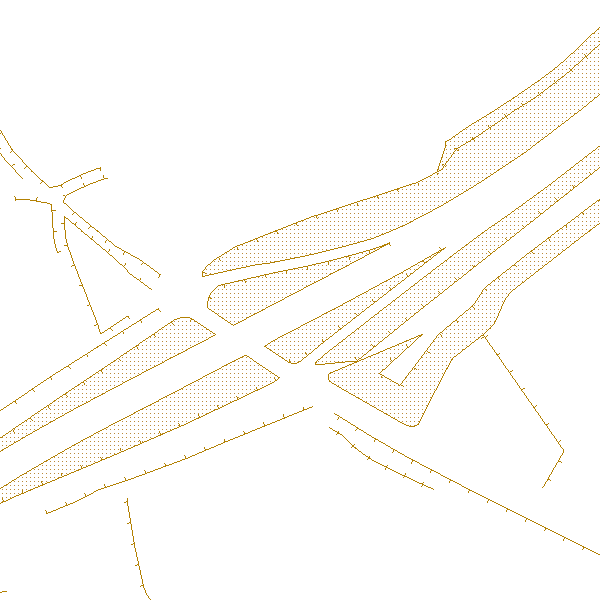
Top10Vector – Local topography is the dataset of the Belgian orography. This dataset consists of eight classes. First class: earth banks. Second class: additional geometry of the slope surface. Third class: dune zone. Fourth class: historic mounds. Fifth class: cave entrances. Sixth class: cone-shaped slag heap. Seventh class: steeps. Eight class: embankments. This dataset can be downloaded via the link in 'Access'.
-
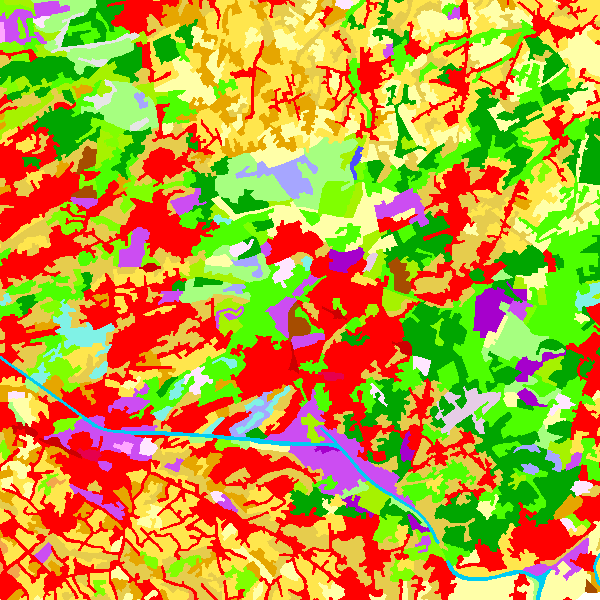
The data set contains a seamless polygonal layer representing the land cover in Belgium for the year 2006 and the year 2012. The polygons are spread over 32 classes from the CORINE Land Cover legend which are present un Belgium. The minimum map unit is 25 ha. The conceptual scale is 1:100 000. The data set also contains a polygon layer showing changes of more than 5 ha in the land cover between 2006 and 2012.
-
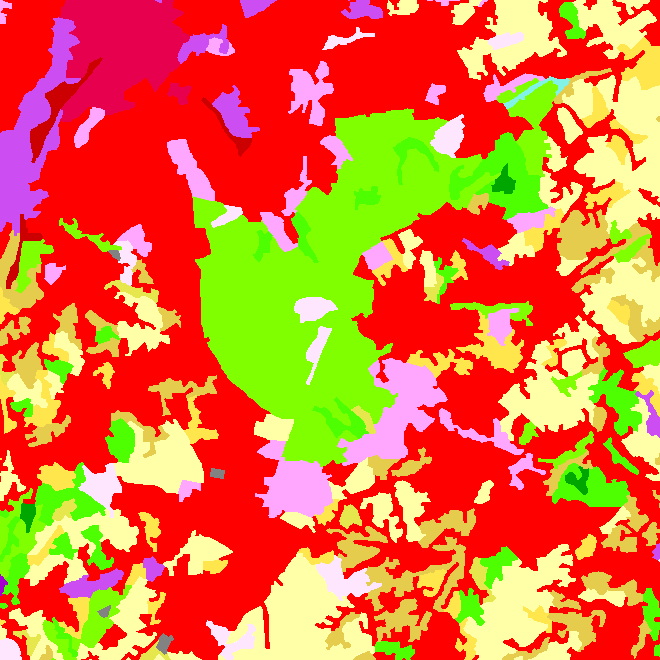
The data set contains a seamless polygonal layer representing the land cover in Belgium for the year 2018. The dataset is INSPIRE compliant.
-
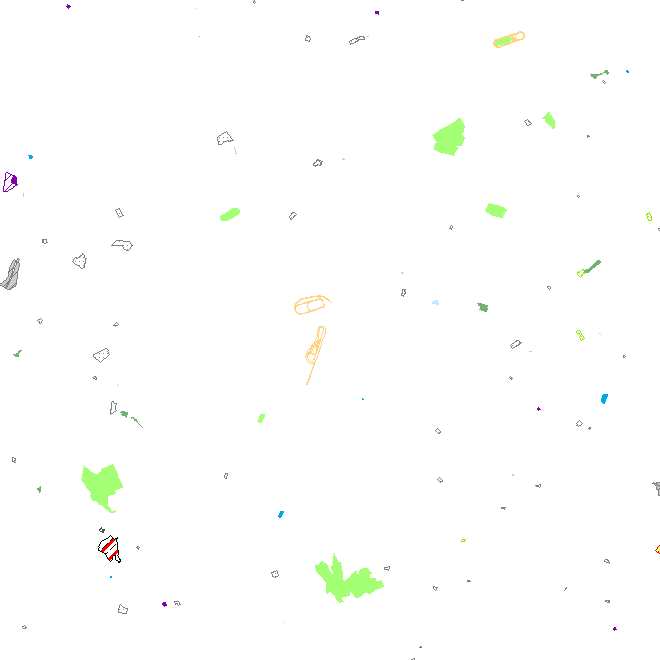
Landuse-Particular Zone is the INSPIRE 2D vector data set of the "Particular zones" layer originated from the Top10vector product of the National Geographic Institute in Belgium . It includes the "ExistingLandUseDataSet" features and the "ExistingLandUseObject" features in accordance with the INSPIRE specifications.
-
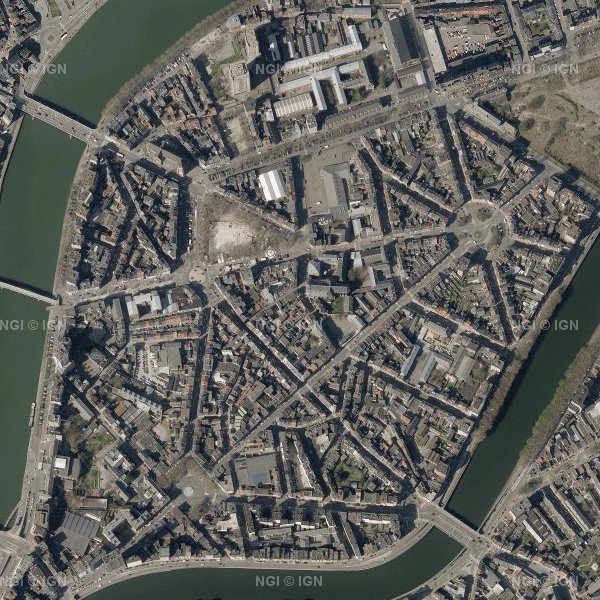
Orthophotos are digital aerial photographs in which the systematic distortions caused by the central projection, terrain relief and an image acquisition axis that is not always perfectly vertical have been corrected. The national orthophoto coverage is renewed annually. This dataset always contains the most recent operational orthophoto mosaics for the entire territory of Belgium. When the most recent acquisition campaign does not provide full coverage, the dataset is composed of the last one or two campaigns. In the current version of the dataset, the most recent national orthophoto coverage consists of a combination of the 2023 and 2024 campaigns. The orthophotos have a spatial resolution of 25 cm in Wallonia and 12.5 cm in Flanders and the Brussels-Capital Region. The source data are supplied by the Belgian administrative Regions. NGI harmonises these regional datasets (geometrically and radiometrically) into a single national mosaic, georeferenced in Lambert 2008 (EPSG:3812) and tiled according to the MapIndex1 grid. The dataset is INSPIRE-compliant and can be downloaded as compressed JPEG2000 files (JP2) per MapIndex1 tile, with the corresponding world file (.j2w) and metadata describing the extent of the tiles.
-
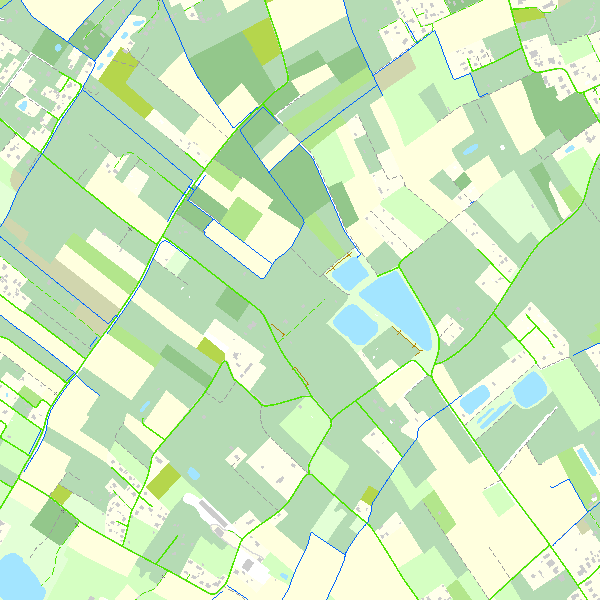
Top10Vector is Belgium's series of topographic vector data. The dataset contains 35 feature classes, which are divided into eight themes (road network, railway network, high-tension network, constructions, land cover and vegetation, local relief and particular zones). Each theme can be downloaded separately via the metadata page of the relevant theme, or collectively as Top10Vector via the link in 'Access' at the bottom of this page.
 geo.be Metadata Catalog
geo.be Metadata Catalog